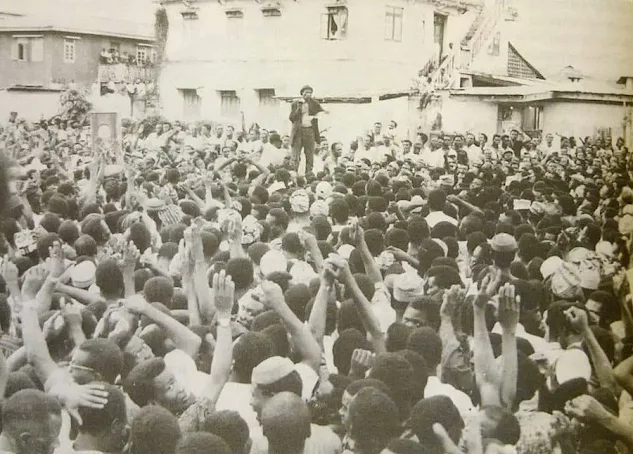This strike marked a turning point in Nigeria’s fight for independence from British colonial rule. The strike began with railway workers, spreading to encompass workers from other industries, including dock and civil service workers, with support even coming from employees at private firms.
Historical Background
At the time, Nigeria was under British colonial rule, which had persisted since 1914 and would continue until 1960.
The Second World War had left the country grappling with high inflation, rising prices, and stagnant wage growth. The government’s efforts to control prices had proven largely ineffective.
coalition of workers, known as the Joint Executive of Government Technical Workers, made their demands clear on March 22, 1945.
They sought a minimum wage of two shillings and six pence and a 50 percent increase in the Cost of Living Allowance (COLA), retroactive to April 1, 1944.
Unfortunately, the colonial government denied these demands on May 2, 1945.
In response, the workers issued a statement, threatening to proceed on a general and lasting strike if their demands weren’t met by Thursday, June 21, 1945.
The Catalyst for the 1945 Nigerian General Strike
Despite negotiations between the colonial government and a delegation of workers led by their President, T.A. Bankole, on May 30, 1945, no resolution was reached.
Just twelve days later, the colonial government made an offer that only slightly adjusted their previous position. This offer was promptly rejected.
On June 2, 1945, in a strategic move, the British Colonialists released Michael Imoudu, a prominent labor leader who had been in prison since 1943, perhaps hoping to pacify the angry workers.
However, Imoudu’s actions acted as a catalyst for the strike, and as labor historian Wogu Ananaba noted, “There is little doubt that but for Imoudu’s activities there might have been no General Strike on June 22.”
The Commencement of the Strike
On June 22, the strike began with railway workers signaling its start in Lagos by blowing train whistles at midnight.
While not all workers initially joined the strike, the support of numerous nationalists, including Herbert Macaulay, Nnamdi Azikiwe, Adunni Oluwole, and Obafemi Awolowo, boosted the strikers’ morale. Imoudu continued to play a prominent role in encouraging workers to join the movement.
Some strikers began to confront those who tried to continue working. The strike, which originated with railway workers, quickly spread throughout the colony, with local labor leaders playing a crucial role in its management.
Government’s Efforts and the Strike’s Impact
The colonial government made several attempts to persuade the workers to end the strike, including spreading propaganda and enlisting labor leaders to mediate negotiations. These efforts, however, proved largely ineffective.
As a result of the strike, transportation between localities ground to a halt, and many had to resort to biking or walking as their primary means of transport. Despite a warning on July 26 that workers continuing the strike into August would be fired, the strike endured.
However, by early August, the strikers became divided and entered into negotiations. On August 3, a compromise was reached, leading to the end of the strike, the withdrawal of lawsuits against strikers, and job security for the workers.
Divisions and Challenges
While the strike had the support of many nationalists, some, particularly those affiliated with the Nigeria Youth Movement, sought to sabotage it.
The media played a contrasting role as well, with the Daily Service, the NYM’s newspaper, supporting the colonial authorities and downplaying the strike.
In retrospect, the 1945 Nigerian General Strike stood as a watershed moment in the country’s journey toward independence.
It showcased the power of collective action and determination among the workers and their allies, and it laid the foundation for future movements that would eventually lead Nigeria to its hard-fought independence in 1960.
Credit: oldNaija via Nigeria stories on X


Beautiful story. I wish Nigerians could unite and fight this leadership for better living standards!
ReplyDeleteLovely read
ReplyDeleteSo No be today all this madness start. Thank you for this Stella
ReplyDelete